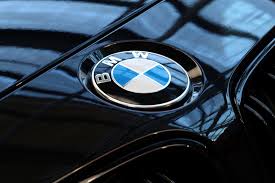
The German car maker BMW expects that its production in the second quarter will be hit because of the global chip shortage nut still said it was on path to meet its profit targets for 2021 even though it estimates raw material costs to be increasing.
A severe crunch of semiconductors for the auto industry globally had hit most of the auto industry around the world and many have been forced to temporarily shut down their plants and resulting in shortage of inventories while also increasing the prices of new and used vehicles both.
"We cannot assume that we will emerge from the second quarter unscathed," BMW Chief Executive Officer Oliver Zipse said.
There will likely not be any major impact to the production of the company because of the global chip shortage, Zipse said, and added that the company will shift priority to the production of cars with higher profit margins in order to circumvent the impact of the chip shortage.
During the first quarter, the sale for its electrified vehicles more than doubled, BMW said. Additionally, higher prices and strong demand in China, where the quarter reported almost doubling of sales for the first quarter compared to the same quarter a year ago also boosted the performance of the company, it said.
By 2025, it will have about 2 million fully-electric cars made by the company on the road, the car maker said.
So far, there has been little impact of the global semiconductor chip shortage which has had strong impacts on its rivals including the largest European car maker Volkswagen.
The chip shortage had put the company in "crisis mode", Volkswagen boss Herbert Diess said on Thursday, and added that the shortage would hit the company’s profits in the second quarter. On the other hand, warning of production in the second quarter because of the chip shortage was also issued by the United States car maker Ford last week.
The strong relationship between BMW and its suppliers is well known in the industry and the German company has been working closely with the suppliers to prevent being impacted by the chip shortage. The shortage has not affected the production of the company apart from a temporary stoppage in production of MINI production in the United Kingdom and production at a plant in Germany.
There will also be an expected rise in the cost of raw materials, especially for rhodium and palladium and steel, BMW’s Chief Financial Officer Nicolas Peter also said during a conference call.
A 370 per cent jump in its pre-tax profit for the first quarter compared to the same period last year, when the pandemic severely affected its business, was also reported by the BMW as the company rebounded from the pandemic in a way that was better than what analysts were expecting.
BMW and its German rivals Volkswagen and Daimler managed to post strong profits for 2020 the Covid-19 pandemic, because of a strong return of demand from consumers in China during the second half of last year.
(Source:www.investing.com)
A severe crunch of semiconductors for the auto industry globally had hit most of the auto industry around the world and many have been forced to temporarily shut down their plants and resulting in shortage of inventories while also increasing the prices of new and used vehicles both.
"We cannot assume that we will emerge from the second quarter unscathed," BMW Chief Executive Officer Oliver Zipse said.
There will likely not be any major impact to the production of the company because of the global chip shortage, Zipse said, and added that the company will shift priority to the production of cars with higher profit margins in order to circumvent the impact of the chip shortage.
During the first quarter, the sale for its electrified vehicles more than doubled, BMW said. Additionally, higher prices and strong demand in China, where the quarter reported almost doubling of sales for the first quarter compared to the same quarter a year ago also boosted the performance of the company, it said.
By 2025, it will have about 2 million fully-electric cars made by the company on the road, the car maker said.
So far, there has been little impact of the global semiconductor chip shortage which has had strong impacts on its rivals including the largest European car maker Volkswagen.
The chip shortage had put the company in "crisis mode", Volkswagen boss Herbert Diess said on Thursday, and added that the shortage would hit the company’s profits in the second quarter. On the other hand, warning of production in the second quarter because of the chip shortage was also issued by the United States car maker Ford last week.
The strong relationship between BMW and its suppliers is well known in the industry and the German company has been working closely with the suppliers to prevent being impacted by the chip shortage. The shortage has not affected the production of the company apart from a temporary stoppage in production of MINI production in the United Kingdom and production at a plant in Germany.
There will also be an expected rise in the cost of raw materials, especially for rhodium and palladium and steel, BMW’s Chief Financial Officer Nicolas Peter also said during a conference call.
A 370 per cent jump in its pre-tax profit for the first quarter compared to the same period last year, when the pandemic severely affected its business, was also reported by the BMW as the company rebounded from the pandemic in a way that was better than what analysts were expecting.
BMW and its German rivals Volkswagen and Daimler managed to post strong profits for 2020 the Covid-19 pandemic, because of a strong return of demand from consumers in China during the second half of last year.
(Source:www.investing.com)














